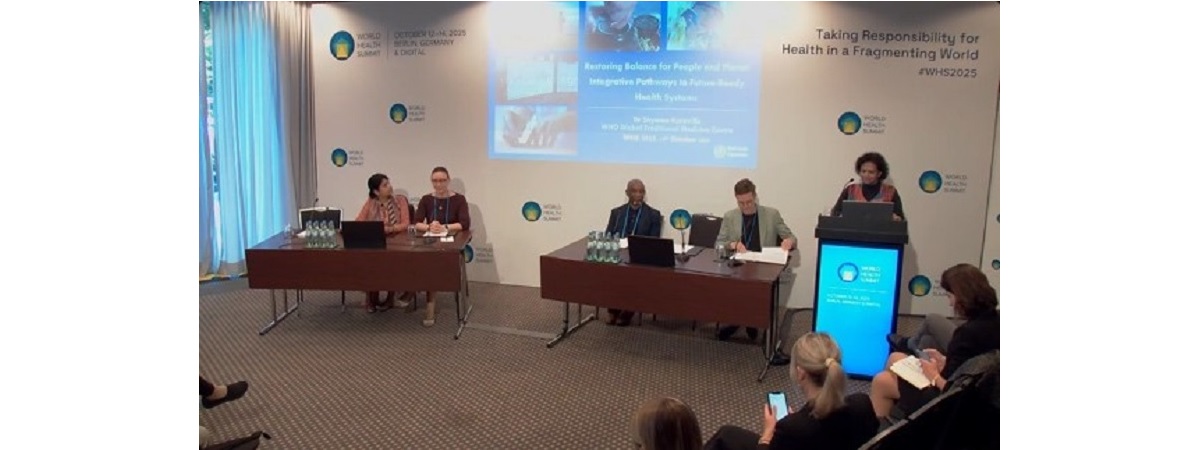Spotlight on traditional medicine at WHS 2025: Why it matters for patients
October 25, 2025
The World Health Summit 2025 in Berlin has placed traditional medicine front and centre. Two dedicated sessions looked at how the WHO Global Centre for Traditional Medicine’s strategy (2025–2034) can shift from vision to national action (World Health Organization+1).
For us at the WPA, this development is meaningful. Patients globally rely on multiple forms of care including formal health systems, traditional practitioners, community healers. Recognising and integrating traditional medicine is not a fringe issue; it touches patient access, culture, trust and health-equity.
Key points from the Summit
• Countries advocated for more inclusive, preventive and sustainable health-models. As Tunisia’s Health-Ministry Director-General put it: traditional medicine “brings people, culture and nature back into the heart of the healing process.”
• A workshop on “Integrative Medicine in Global Health: Pathways for Implementation” emphasised patient-centred care, evidence-based research and collaboration between traditional and biomedical systems.
• Several country cases were highlighted: Germany’s integrative oncology network, South Africa’s Indigenous Knowledge Systems health programme, Egypt’s regulatory history for herbal medicine.
• The Summit sets the stage for the upcoming WHO Global Summit on Traditional Medicine (17-19 Dec 2025 in New Delhi) and the roll-out of the WHO Global Strategy for Traditional Medicine.
Why this matters for patients
• Access & choice. Often patients in low- and middle-income settings rely on traditional medicine because conventional services are limited. Recognising these systems can expand meaningful care-options.
• Cultural relevance and trust. Traditional medicine is rooted in culture and community. For many patients, trust in care is as important as clinical efficacy. Integration can bridge cultural gaps and improve uptake.
• Quality and safety. As traditional medicine becomes more visible in global policy, the emphasis on evidence, regulation and standardisation grows. That benefits patients by reducing risks of unsafe or unverified treatments.
• Equity. Often the most marginalised patients lean on traditional medicine. A coherent policy framework that honours those systems helps to reduce health-inequities.
• Patient-voice and involvement. For any integration to work, patient perspectives must be central. What works for one community may not for another. Engagement is key.
What WPA will focus on
• We will advocate for patient inclusion in the design, implementation and monitoring of integrated health systems that include traditional medicine.
• We will emphasise transparency: How are traditional-medicine systems being certified? What evidence base is being built? What protection is offered to patients?
• We will promote education and awareness: Patients need accurate information about what traditional medicine can and cannot do, where it is regulated and how it connects with other care.
• We will highlight equity and access: Ensuring that integration does not leave behind the poorest, marginalised or rural patients whose traditions are often informal.
• We will monitor outcomes: We will work to ensure that the global agreements translate into measurable improvements in patient-care, access, safety, satisfaction, cultural relevance.
The spotlight on traditional medicine at WHS 2025 is a welcome move. It reflects an evolving global health narrative, one that accepts pluralism in care and underscores the importance of culturally-relevant, patient-centred systems.
But words alone are not enough. For patients, the real question is: Will this translate into stronger, safer, more inclusive care? Will the promise of better integration reach rural clinics, indigenous communities, people living with chronic disease?
The WPA calls on governments, health systems, practitioners and patient groups to work together to ensure that the potential benefits of traditional medicine integration become real for patients everywhere.


